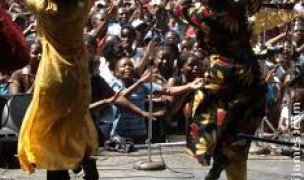 11 Terms
11 TermsHome > Terms > Armenian (HY) > Դեվիդ Րիկառդո
Դեվիդ Րիկառդո
The third of 17 children of a wealthy banker, David Ricardo (1772–1823) was disinherited at the age of 21 after he married a Quaker against the wishes of his parents. He became a stockbroker and did so well that he retired at 42 to concentrate on writing and politics. A friend of fellow classical economists Thomas Malthus and Jean-Baptiste Say (see Say's law), he developed many economic theories that are still in use today. The most influential was comparative advantage, the theory underpinning the case for free trade. In his 1817 book, The Principles of Political Economy and Taxation, he outlined a theory of distribution of output in an economy. In this he argued that the allocation of factors of production to any area of economic activity is determined by the level of economic rent that can be earned from it. As this gradually falls because of diminishing returns, capital and other resources shift to more profitable projects. He examined the split between wages and profit, arguing that “there can be no rise in the value of labor without a fall of profits”. He also claimed that changes in the government deficit did not affect the level of demand in the economy (Ricardian equivalence).
- Kalbos dalis: proper noun
- Sinonimai:
- Blossary:
- Pramonės šaka / sritis: Economy
- Category: Economics
- Company: The Economist
- Produktas / gaminys:
- Akronimas / santrumpa:
Kitos kalbos:
Ką norite pasakyti?
Terms in the News
Featured Terms
ձեռքերը կանթած
Դիրք, երբ ձեռքերը կոնքամասում են և արմունկներն էլ դուրս են հակված:
Talkininkas
Featured blossaries
karel24
0
Terms
23
Aiškinamieji žodynai
1
Followers
Hard Liquor's famous brands
 11 Terms
11 Terms
tula.ndex
0
Terms
51
Aiškinamieji žodynai
11
Followers
Zimbabwean Musicians
 8 Terms
8 Terms
Browers Terms By Category
- Lingerie(48)
- Underwear(32)
- Skirts & dresses(30)
- Coats & jackets(25)
- Trousers & shorts(22)
- Shirts(17)
Apparel(222) Terms
- Human evolution(1831)
- Evolution(562)
- General archaeology(328)
- Archaeology tools(11)
- Artifacts(8)
- Dig sites(4)
Archaeology(2749) Terms
- Bridge(5007)
- Plumbing(1082)
- Carpentry(559)
- Architecture(556)
- Flooring(503)
- Home remodeling(421)
Construction(10757) Terms
- Digital Signal Processors (DSP)(1099)
- Test equipment(1007)
- Semiconductor quality(321)
- Silicon wafer(101)
- Components, parts & accessories(10)
- Process equipment(6)




